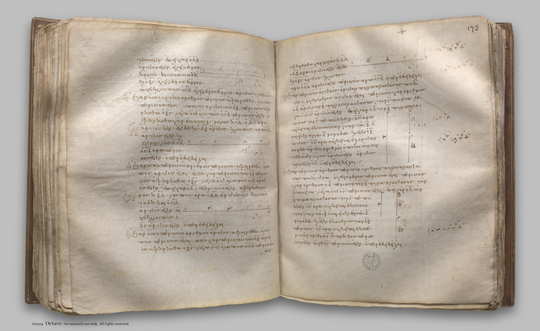index prev next | digilib folio 177

If from an odd number an odd number be subtracted, the remainder will be even.
| Ἐὰν ἀπὸ περισσοῦ ἀριθμοῦ περισσὸς ἀφαιρεθῇ, ὁ λοιπὸς ἄρτιος ἔσται. Ἀπὸ γὰρ περισσοῦ τοῦ ΑΒ περισσὸς ἀφῃρήσθω ὁ ΒΓ: λέγω, ὅτι ὁ λοιπὸς ὁ ΓΑ ἄρτιός ἐστιν. Ἐπεὶ γὰρ ὁ ΑΒ περισσός ἐστιν, ἀφῃρήσθω μονὰς ἡ ΒΔ: λοιπὸς ἄρα ὁ ΑΔ ἄρτιός ἐστιν. διὰ τὰ αὐτὰ δὴ καὶ ὁ ΓΔ ἄρτιός ἐστιν: ὥστε καὶ λοιπὸς ὁ ΓΑ ἄρτιός ἐστιν: ὅπερ ἔδει δεῖξαι. | If from an odd number an odd number be subtracted, the remainder will be even. For from the odd number AB let the odd number BC be subtracted; I say that the remainder CA is even. For, since AB is odd, let the unit BD be subtracted; therefore the remainder AD is even. [VII. Def. 7] |